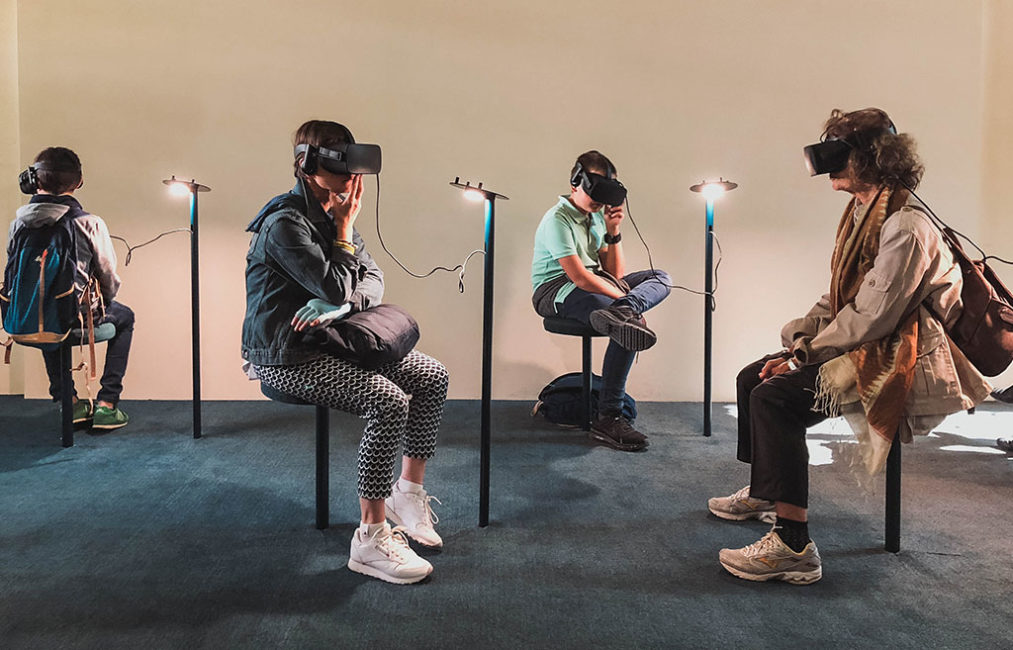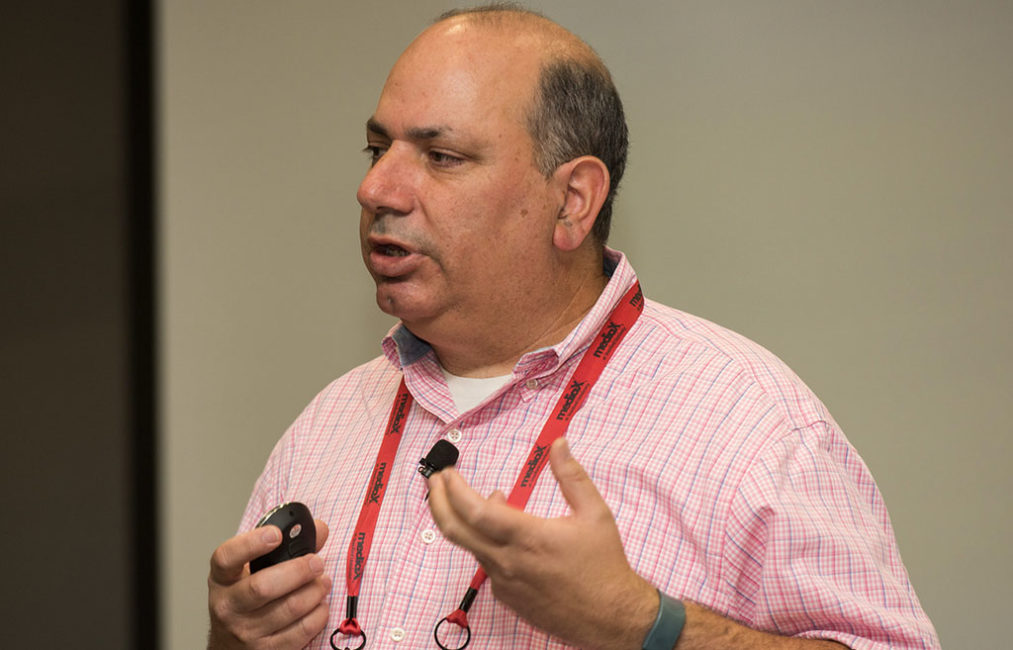The Many Futures of Virtual Learning Environments
Aditya Vishwanath is a Ph.D. candidate in Learning Sciences and Technology Design and a Knight-Hennessy scholar at Stanford University. His research takes a human-centered approach towards developing immersive learning experiences, leveraging emerging technologies. Previously, he worked with the Google Education team where he studied how low-cost virtual reality toolkits could be integrated into the school […]
The Artful Design of Immersion
Ge Wang is an Associate Professor at Stanford University in the Center for Computer Research in Music and Acoustics (CCRMA). He specializes in the art of design and computer music — researching programming languages and interactive software design for music, interaction design, mobile music, laptop orchestras, expressive design of virtual reality, aesthetics of music technology […]
Players First: The Responsibility & Opportunity of Multiplayer Video Games Today
Ivan Davies has a background in sports psychology, specializing in group cohesion and collective efficacy. In 2005, he became a Physical Education teacher in the UK, where he delivered lessons for students aged 11–18 years in a co-educational specialist sports college. During this period, he worked with the Qualifications and Curriculum Authority (QCA) to carry […]
Attention and Engagement for Teamwork
Renate Fruchter is the founding director of the Project Based Learning Laboratory (PBL Lab), lecturer in the Department of Civil and Environmental Engineering, and Senior Research Engineer thrust leader of “Collaboration Technologies” at the Center for Integrated Facilities Engineering (CIFE), at Stanford. She leads a research effort to develop collaboration technologies for multidisciplinary, geographically distributed […]
AI for Affect, Personalization and Reciprocity: Modeling the Self and the Other
Nick Haber is an Assistant Professor at the Stanford Graduate School of Education, and by courtesy, Computer Science. After receiving his PhD in mathematics on Partial Differential Equation theory, he worked on Sension, a company that applied computer vision to online education. He then co-founded the Autism Glass Project at Stanford, a research effort that […]

Immersion for Learning
What are the human requirements for learning in immersive environments?

mediaX Thought Leader Helps Create Storytelling Fitness App
Professor James Landay and his students have created a fitness app called WhoIsZuki that motivates behavior change by using storytelling to keep users interested and engaged in staying active over time.
Immersive Technologies for Learning
July 30, 2020
In this first-of-kind, the Very Virtual Retreat we will use existing and emerging technologies to leverage experiences and insights from the mediaX membership community of scholars, researchers, instructors and learners focusing on immersive technologies for learning.
Immersive Technologies for Discovery
July 28, 2020
In this first-of-kind, the Very Virtual Retreat we will use existing and emerging technologies to leverage experiences and insights from the mediaX membership community of scholars, researchers, instructors and learners focusing on immersive technologies for discovery.